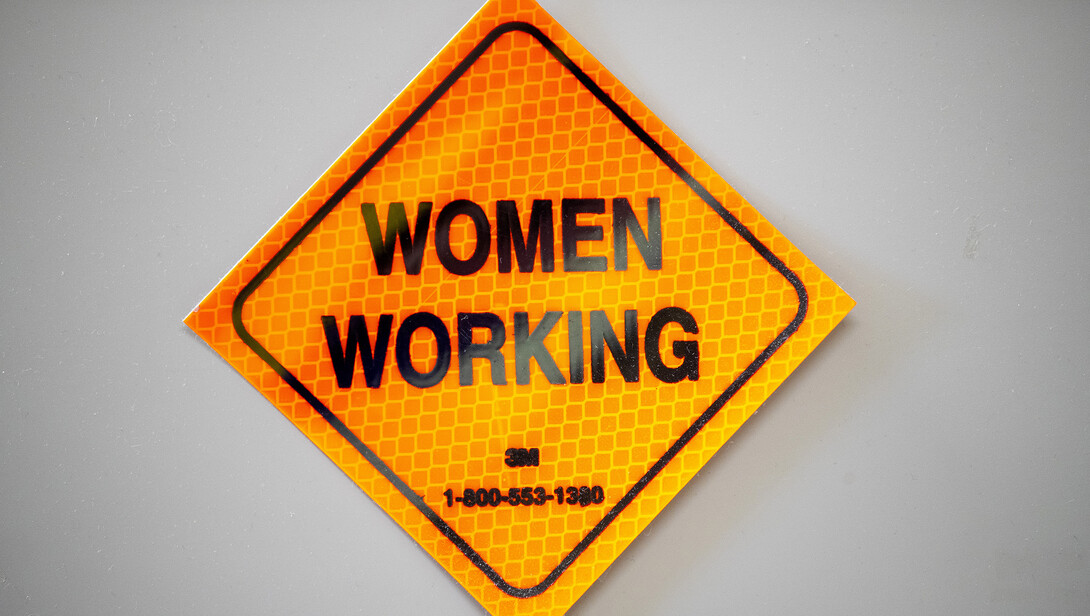
Editor’s Note — In observance of Women’s History Month, Nebraska Today is honoring Husker alumnae in March. Every Tuesday and Thursday, we’ll publish a feature story about Nebraska graduates making their mark on the world.
For all she’s accomplished in the typically male-dominated world of engineering, it’s easy to think of Pam Dingman as more than a role model.
After earning a civil engineering degree from the University of Nebraska–Lincoln in 1991, Dingman worked in numerous firms, including becoming the first woman stockholder in her engineering company in the early 2000s.
A few years later, she left to join Engineering Design Consultants, and in 2005 she acquired the company and became one of a handful of women to own a United States-based civil engineering firm.
In 2013, she was chosen from four candidates and appointed to the job of Lancaster County Engineer, and in 2014 defeated another candidate to become the first woman in the U.S. to win a contested county engineer election.
Along the way, she’s earned numerous awards, blazed trails and opened doors for women in engineering.
Just don’t call her a “pioneer.”
Times have changed, Dingman said, and women achieving success in any field has long ago ceased to be a novelty.
“In this millennium, why do we have to have ‘pioneers’? That makes it sound like we’re still in the 1970s,” Dingman said. “We really need to cross that bridge and not turn around.”
That empowerment was not part of Dingman’s path to engineering.

Though she was “quite proficient” at playing the violin and viola while in high school in the 1980s, Dingman was attracted to STEM fields and wanted to pursue an engineering career.
Still, encouragement from adults was hard to find. A school guidance counselor tried to nudge her into pursuing music or, perhaps, attending a technical school to be trained as an electrician.
After taking a year of music and pre-engineering classes at Wayne State College, Dingman joined the U.S. Army ROTC and transferred to the University of Nebraska–Lincoln. The agreement with the Army paid for her education with the stipulation that she obtain an engineering degree.
Discouraged from seeking a degree in mechanical engineering, Dingman remained determined to become an engineer.
It’s a type of setback many women have faced, but one Dingman now calls serendipitous.
“I think civil engineering is where I always should have been. I have a great passion for it, but where I am today is a very different place than where I was 30 years ago when I had to stand up for myself and fight,” Dingman said. “Unfortunately, the college didn’t have the great advising programs it has now or experts to help you find your path.”
That, Dingman said, is why it remains important for women engineers to be mentors and facilitators for the next generations and why she continues to create opportunities for women.
“When I arrived at County Engineering, we had a work floor that had zero gender diversity, and I was suddenly in that leadership position,” Dingman said. “Today, we have five full-time engineers — three of which are women.
“That (gender diversity) is something we as engineers need to work on. It’s difficult because women can still end up as engineers in places where they’re the first or only woman. Any time that happens, you’re definitely breaking ground and it’s incumbent that you make room for others to follow you, to create more room for all of us.”

Creating that literal and figurative space for growth is in the College of Engineering’s plans, which include a building project that begins this summer, goals to increase both the numbers of faculty and students in the college, and a desire to drive more economic growth for the State of Nebraska.
Putting women at the forefront could be a key component in achieving those goals.
According to fall 2018 figures, 498 of the 3,077 undergraduates in the College of Engineering were women — about 16 percent.
“We need to keep more engineers in the state, and to do that we need more engineering jobs that will keep them here,” Dingman said. “That’s even more important for women engineers. When women leave Nebraska, they have a tendency to not come back.
“What makes me so proud to be an alumnus is that Dean Lance Pérez is dedicated to creating a diverse engineering environment. That’s going to be important for the state moving forward.”







